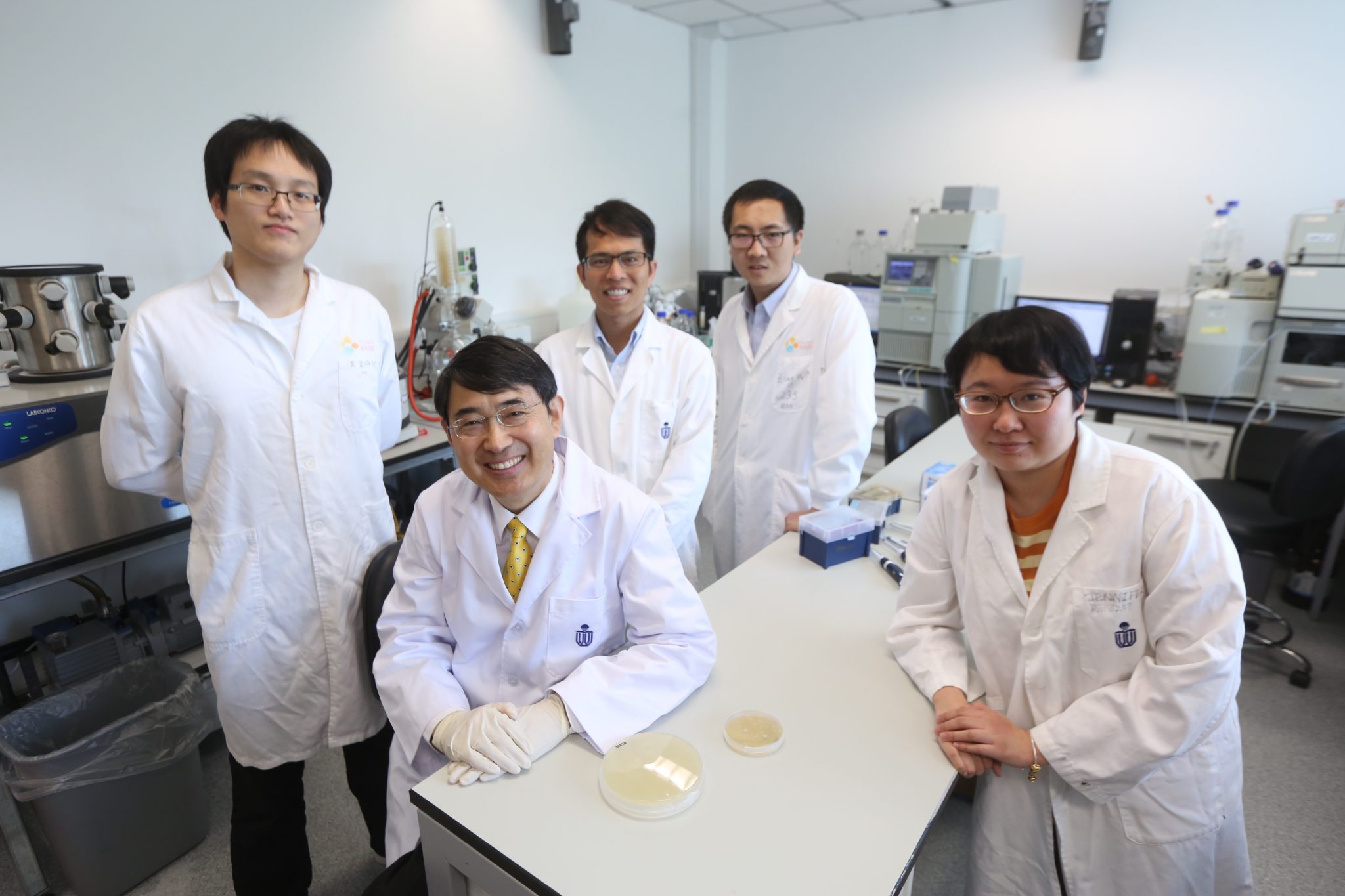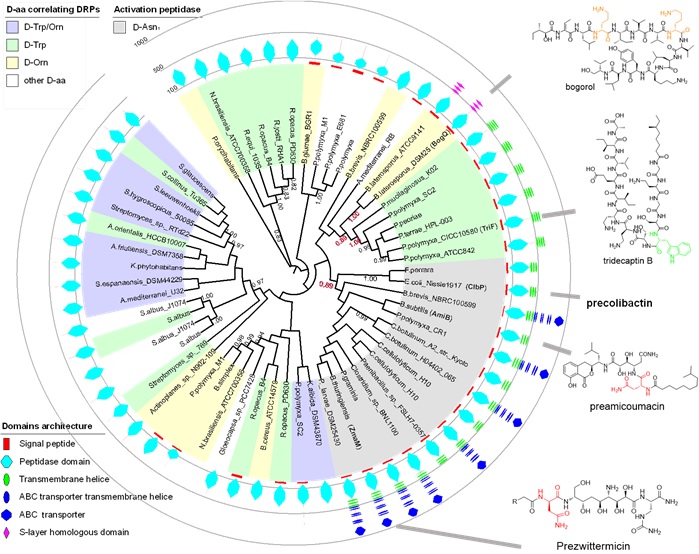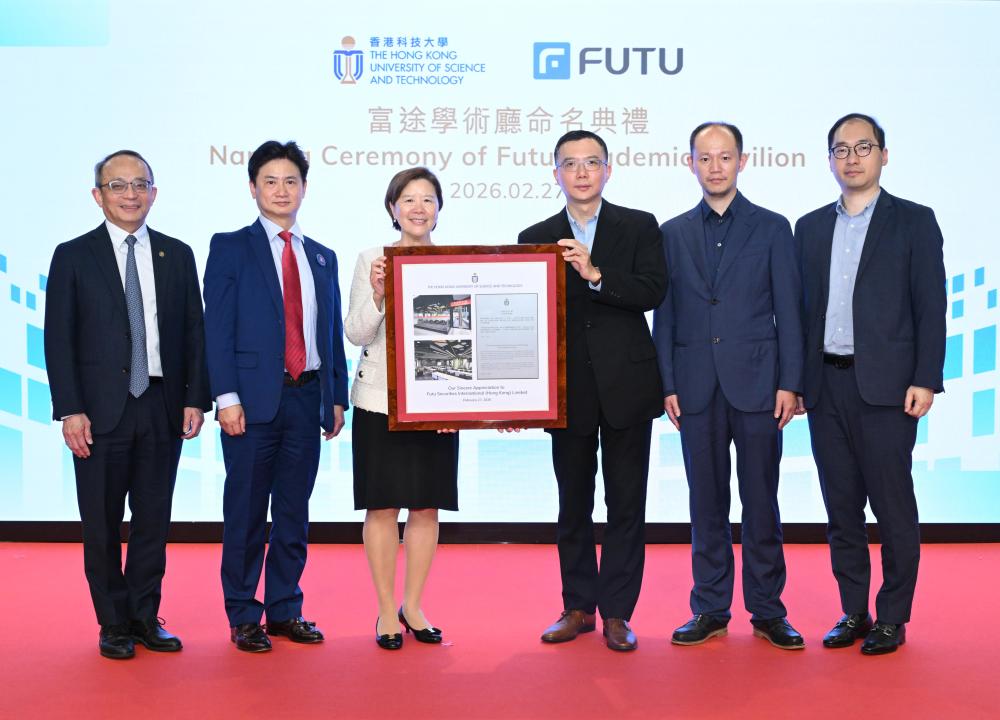HKUST Discovers New Antibiotics Resistance Mechanism Paving the Way for Design of Antibiotics Against Superbugs
Researchers at The Hong Kong University of Science and Technology (HKUST) have identified for the first time the culprit behind the causing of broad-spectrum bacterial resistance to peptide antibiotics - widely perceived as the last-line of defense against antibiotic-resistant bacteria, opening a new direction to the design of new drugs in tackling superbugs.
The discovery – made by Chair Professor from the Division of Life Science Prof Qian Pei-Yuan and his fellow researchers, came in the best moment as the team has also discovered that this enzyme, which they identified as the cause of broad-spectrum bacteria resistance against peptide antibiotics, was actually found in not just a few, but many different strains of bacteria, sounding an alarm against persistent improper use of antibiotics.
Peptide antibiotics - including vancomycin and polymyxin for respective treatment of Staphylococcus Aureus (CA-MRSA) Infection and Escherichia coil infection, are often used as the last resort due to their resilience to multidrug resistant bacteria. However, a few years ago scientists have started identifying a few types of peptide antibiotics which have developed symptoms of bacterial resistance, although the causes behind remained unknown. Now, following the analysis of over 6,000 bacteria genomes under repeated validation through gene editing, chemical and enzymatic analyses, Prof Qian’s team eventually identified a family of D-stereospecific resistance peptidases (DRPs) as the source of the problem, and its magnitude extends well beyond a few strains of bacteria.
“DRPs are phylogenetically widely distributed in nature, if they are transferred to opportunistic pathogens with human’s increasing misuse and overuse of antibiotics, more and more peptide antibiotics would be rendered useless, leading to delay or even failure in treatment,” said Prof Qian, also David von Hansemann Professor of Science as well as Acting Head of the Department of Ocean Science at HKUST.
‘Misuse and overuse of antibiotics of humans will intensify the problem of antibiotic resistance of pathogens, that makes research on peptide antibiotics even more important,” he added. “Deepening our understanding of antibiotic resistance mechanisms to peptide antibiotics does not only serve as a wake-up call, but is also conducive to increasing our collective antibiotic arsenal. The findings of DRPs is just the beginning, we hope it will lead to more research on the use and development of peptide antibiotics.”
The findings were recently published in the scientific journal Nature Chemical Biology.
About The Hong Kong University of Science and Technology
The Hong Kong University of Science and Technology (HKUST) (www.ust.hk) is a world-class research university that focuses on science, technology and business as well as humanities and social science. HKUST offers an international campus, and a holistic and interdisciplinary pedagogy to nurture well-rounded graduates with global vision, a strong entrepreneurial spirit and innovative thinking. HKUST attained the highest proportion of internationally excellent research work in the Research Assessment Exercise 2014 of Hong Kong’s University Grants Committee, and is the world’s second in the latest QS’ Top 50 under 50 ranking. Its graduates were ranked 12th worldwide and top in Greater China in Global Employability University Survey 2017.
For media enquiries, please contact:














